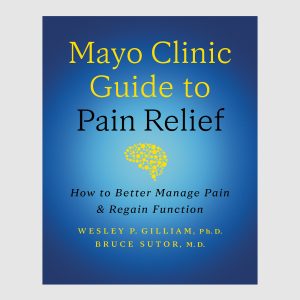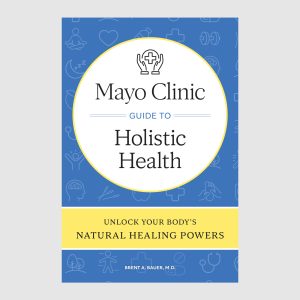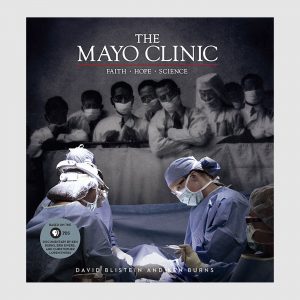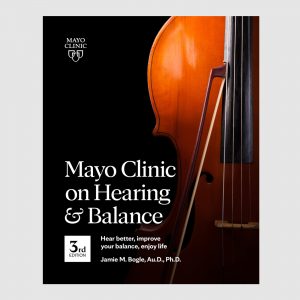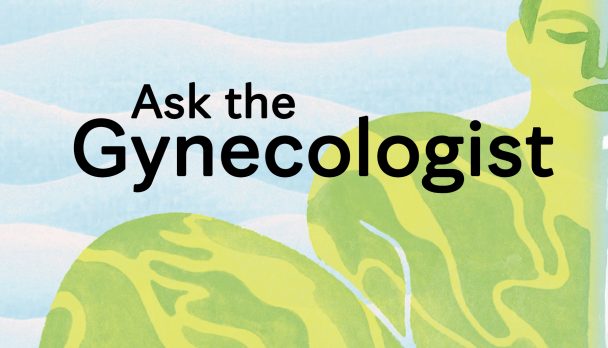Cognitive functioning is a key part of overall health and independence — which is why dementia can be especially challenging for individuals, family, and loved ones. But is dementia preventable? What can we do now to preserve brain health? And how do we distinguish between cognitive changes related to typical aging and symptoms of dementia?
On this episode of Aging Forward, we talk with internist and geriatrician Dr. Ericka Tung about these common questions, caring for adults with dementia, and positive outlooks for dementia prevention.
Want more Aging Forward? Find us on Apple, Spotify, or wherever you listen to podcasts.
Read the transcript:
Dr. Chen:
This is “Aging Forward,” a podcast from Mayo Clinic about geriatric medicine and the science of healthy aging. Each episode we explore new ways to take care of ourselves, our loved ones, and our community, so we can all live longer, fuller lives. I’m Dr. Christina Chen, a geriatrician and internist at Mayo Clinic in Rochester, Minnesota. This episode, for World Alzheimer’s Month, we’re talking about our cognitive health, and in particular, Dementia.
Our guest is Dr. Ericka Tung. Dr. Tung is an internist and geriatrician at Mayo Clinic in Rochester, Minnesota. Thank you so much for being here, Dr. Tung.
Dr. Tung:
Thank you for inviting me, Dr. Chen. It’s my great pleasure to be here with you today.
Dr. Chen:
I think this is a topic that’s so near and dear to our hearts as we are immersed in this practice every day. I’ve got a lot of questions from our listeners about this already about how is it do we approach cognitive health, which is so scary as a provider, but also very scary for patients and family members who are going through this.
We really appreciate your expertise on this matter today.
Dr. Tung:
Absolutely. There’s not a single person on earth that isn’t touched by cognitive conditions like Dementia, whether you’re a caregiver or a relative or a person that’s affected themselves. This is an extremely common and challenging condition. I’m delighted to be here with you to talk about this.
Dr. Chen:
I think we need a proper introduction for you today. Before we get started, Dr. Tung is a geriatrician at Mayo Clinic. She’s been here for over 20 years now. Truly a distinguished clinician educator. She recently ran our geriatric fellowship program for the past eight years, where she has inspired many generations of learners, including myself. I can honestly brag about you all day, but I think what your gift is, is that Dr. Tung is just a really incredible connector of people. She empowers people well.
She helps people discover and rediscover skills and attributes, which really translates well to her clinical practice, and especially Dementia care, where she has really championed many programs to help improve the quality of life.
The care for patients who are going through that journey and their families. It’s really incredible to see the innovation that she’s led in the space and truly a mastermind in this area of Dementia care. So excited to pick your brain today.
Dr. Tung:
Thanks for that kind introduction. I’m not sure I deserve all of that, but I appreciate that.
Dr. Chen:
The topic today is, is Dementia preventable? How do we recognize early cognitive impairment? What does it mean, and how do we optimize? Before we get started on the questions, Dr. Chung, I’m curious, and I’m sure our learners are curious too. How did you become so passionate in this domain of Dementia care?
Dr. Tung:
As a geriatrician, I’ve always loved taking care of folks that have complex neurological conditions. Dementia is one of those conditions that impacts everyone. Every facet of a person’s life. It’s not an easy nut to crack because it impacts how we manage other chronic conditions a person might have.
It impacts a person’s ability to run their own household. It impacts their relationships. It really ties in well to my love of primary care where we really treat them. The whole person and our holistic approach. I think my interest in longitudinal care and taking care of families really ties in well to this condition.
Certainly my family is not unlike many families where we’ve had many of our relatives with cognitive spectrum conditions. It’s definitely a topic that’s near and dear to my heart.
Dr. Chen:
Yeah, a topic that’s right for learning in many ways, for sure. Let’s start with some basic conversation. Basic definitions here are what Dementia is and how is this different from our day to day forgetfulness that I experience, honestly, all the time. What’s the difference there?
Dr. Tung:
Great question, Dr. Chen. When we use the term Dementia, we’re really using this as a general term that describes conditions where a person is having a difficult time with thinking functions. Thinking functions or cognitive functions. This could mean a memory problem and that could be short term memory problems. It could be new language difficulties.
There could be difficulty with problem solving or executive functioning. Planning and multitasking and this set of conditions or symptoms are usually caused by a degenerative process in the brain that impacts the nerves and the connection between those nerves. You’re exactly right. We all have daily memory lapses. Every one of us. It’s totally normal to forget where you put your car keys or to see a person that you know at the grocery store and not be able to remember their name.
Those things are normal memory lapses. But we start to worry if those memory lapses or kind of normal cognitive functions start to impact our ability to function professionally and socially.
Dr. Chen:
The impact of function, I think, is the difference. That’s the key word there.
Dr. Tung:
It’s funny you mentioned our memory lapses. It happened to me just this morning. Now that I think about it, I was getting a cup of coffee, like my morning coffee. I put my coffee down, went to the bathroom. I’m not sure why. I forgot already.
Dr. Chen:
That’s what I’m talking about. You just forget these things.
Dr. Tung:
I came back and I couldn’t find my coffee cup. I’m like, where did I put my coffee? I looked everywhere. I spent a good 10 minutes just looking for my coffee. Then, it turns out, I stuck it in the refrigerator. I don’t know why I would do that. I feel like these lapses happen all the time. A common question I get is, “Isn’t this just something that happens normally with aging?” Is this something that we need to expect and at what point is that transition between normal and abnormal where this morning I would say it affected my function to some degree? I didn’t get my coffee, but is that a true measure of functional impairment?
It can be super frustrating when you have those daily memory lapses, and sometimes, especially as we get older, especially as we’re talking to our older patients, it can cause some consternation or some worry. Is this abnormal or not? As a jury attrition or as a primary care internist, I’m really looking for patterns.
It’s not just the single coffee cup episode, but it’s, “Gosh, I am not only forgetting where I put things, but I never find them again.” Or I didn’t just forget the details of a lunch date, I forgot that I even went on that lunch date. It’s forgetting events. It’s not being able to do something that I was able to do before. Before I could organize Thanksgiving dinner with no problem and follow recipes and now that’s really hard, so when I’m hearing those types of things from a patient or from a loved one, that things that this person could do before, that now they can’t do independently, that’s when I start to get a little worried.
Dr. Chen:
Would you say that most people are aware of that? Because I feel like when you’re living through the moment, day to day, you don’t realize what your deficiencies are, where that collateral information from family members may be more helpful to get the details of what has changed, maybe in small amounts over time, but something that the person who’s living with that experience may not notice.
Dr. Tung:
Sometimes people have insight and frustration about some of those things. Deficits and other times you’re right. We do depend on our family members to give us a little bit of feedback like before you were able to do that and now I’m having to help you with this. That combination when I’m taking history from a patient, it’s so great to have, whether it’s a friend, a spouse, a partner, a relative there with them to give a little bit of background.
Dr. Chen:
To be able to do it in a sensitive way where it’s not making them feel bad that you’ve lost all these abilities, that they’re not made to feel guilty that, “Oh, you were able to do this a year ago, not anymore. And doing it in a sensitive way for sure. Because there are still a lot of, even with advancing Dementia, there’s still a lot of things that that person’s doing well.
Dr. Tung:
Right. I also like to hear what they’re doing well. Draw that out too.
Dr. Chen:
You mentioned earlier that there are many different causes of cognitive impairment related to brain degeneration and we’re very familiar with Alzheimer’s, Dementia being the most common one, but can you just review some of the other more common causes of pathologic cognitive impairment?
Dr. Tung:
Absolutely. You’re exactly right that we recognize Alzheimer’s disease as one of the most common neurodegenerative conditions. But we see plenty of patients with Dementia with Lewy bodies, another type of neurodegenerative condition.. We see a number of people that have vascular related Dementia. A less common type, but can be very, very challenging to live with, is frontotemporal Dementia.
But what’s interesting is that now, because we have a lot more information from imaging studies, biomarker studies, and autopsy studies, we’re realizing that most people with Dementia may have more than one.
We might find that a person has mixed Alzheimer’s disease and Lewy body disease or mixed Alzheimer’s disease and vascular Dementia. This kind gets to the part of the reason why this is such a hard condition to treat and such a hard condition to cure because of etiology.
Dr. Chen:
There’s so many different types, but are there risks? Similar, are the risks kind of overlapping because that’s a common question that I get is what causes this, what can we do to prevent it, which is kind of the second half of our talk here, but are there known risks for any of these Dementias?
Dr. Tung: One of the strongest risk factors is one we can’t change, and that’s our age. Age is an important risk factor, but we’re learning more and more about potentially modifiable risk factors for Dementia. A lot of these risk factors that we are going to talk about today can contribute to increased risk for multiple types of Dementia, both vascular and nonvascular types. Shall we explore some of those potential risks?
Dr. Chen:
Potentially modifiable risk factors.
Dr. Tung:
Absolutely. We can certainly weave that into our conversation later about prevention too. The modifiable ones that we know, if implemented early, can certainly help and perhaps can prevent this rapid prevalence that’s increasing over the next 20 years or so. I’ve just seen charts of how the world is not only aging, but the prevalence of Dementia is going to triple in the next 23 years and that scares me because it’s like this wave that’s coming towards us.
Dr. Chen:
We can’t really do much about it except try to prepare and the best way to prepare is by informing ourselves of how to best do that.
Dr. Tung:
I think knowing what those risk factors are and knowing that some of them are potentially modifiable gives us a sense of security too. We can do something today.
I always think about risk factors in early life, in midlife and in later life. As we think about our children and teenagers and young adults right now, getting more education and keeping our minds busy and keeping our bodies busy, being physically active, are important risk factors that we can attend to.
Also avoiding head trauma—Wearing helmets when we’re riding bikes or other activities where there’s a risk for head trauma. All these things are super important. In middle life, we really start to think about vascular risk factors. Preventing or managing high blood pressure, preventing or managing diabetes, high cholesterol are such powerful things that we can be doing in our 30s, 40s, and 50s that can reduce our risk for Dementia down the line. Similarly, not smoking is probably one of the most important things. Now, we’re realizing more and more that there are some unique factors that we didn’t know about 10, 15 or 20 years ago when you and I were in medical school and residency. One of those is hearing impairment. We know that [hearing impairment] stresses the brain. It takes a lot more energy if we can’t hear and [if] we’re not able to hear, [it’s difficult to] encode new information.
Dr. Chen:
There’s a lot of exciting literature suggesting that identifying hearing impairment or preventing hearing impairment in early and middle life and treating it when it does occur, can potentially prevent Dementia as well.
Dr. Tung:
The sensory input is so huge and we don’t realize how important that is until we start to lose those senses.
Dr. Chen:
For sure. How about exercise? We know that exercise has so many health benefits. How does that protect our brain health?
Dr. Tung:
In addition to lowering our risk for cerebrovascular and cardiovascular disease, we also know that this is just healthy for our brain plasticity. All types of exercise, whether it’s aerobic exercise running and bicycling, or other lower impact types of exercise like Tai Chi and yoga, we know that this is really powerful for the brain. All the time. There’s no downside. There is no downside. I think exercise is always the answer to choose whenever you have any questions.
Dr. Chen:
Is there a prevention strategy?
Dr. Tung:
We would be very bored in our clinical practices if everybody modified those vascular risk factors and exercise.
Dr. Chen:
Now you mentioned that early on, just as children, as growing up in our adolescence, that education, the social connectedness and just being with others has such a big impact, impact in our brain development. But also in our older years, there’s been a lot of discussion about how social connectedness can preserve cognitive function.
I’ve noticed that, especially in the past three years during the pandemic, that affected my patients so tremendously, and I’m just curious what you’ve observed from your end for people who’ve had cognitive impairment that disconnect from the community, how that impacted them.
Dr. Tung:
I think social interactions are so important for the body, mind, soul, and more and more we realize that that’s one of those healthy habits. Connecting with our community, connecting with our loved ones, all those things are good for so many dimensions of our health, including our cognitive health.
Dr. Chen:
I agree. The pandemic was so devastating to people living with cognitive impairment. Not only were people more isolated, we didn’t have as many care providers in facilities where oftentimes our patients and loved ones with Dementia lived, and so they didn’t get as much hands on care and oftentimes just some of us had so many barriers to communication.
Their loved ones couldn’t come in, we were wearing masks, it was harder to read facial expressions. It was just a really challenging time for this vulnerable population.
It was sad to see that a lot. I feel like I saw so many people pass away during that time, not from COVID related causes, but just from loneliness and depression and their brains just shut down when they lost that sense of familiarity and the sense of what happened to my daughter who was coming every day to visit me? All of a sudden they’re gone. Are there any other risks that we need to be aware of? For example, are there certain medications that could increase our risk of Dementia, things that we should be avoiding early on?
Dr. Tung:
We talked a little bit about smoking and that’s for sure something that needs to be avoided for so many reasons. Excess alcohol is now being recognized, especially during early and midlife, so excess alcohol is a risk factor for Dementia. But also some of the medications, whether they’re prescription or over the counter medications that we take, have been associated with increased risk of cognitive problems down the road.
We call a class of medications anticholinergic medications that reduce the levels of an important chemical acetylcholine in our brain. Lots of different medication classes could fall under that umbrella of anticholinergic medications. Some types of psychoactive medications like tricyclic antidepressants.
Some very strong allergy medicines or bladder medicines could also fall under that umbrella. Those medications, when taken for long periods of time in higher doses, can confer a slightly increased risk for cognitive impairment. Then we also know that another class of medications that are often used for severe anxiety like benzodiazepines can also confer some increased risk for cognitive impairment down the road.
Dr. Chen:
That’s good to know that there’s just so many domains of cognitive health that we may not be aware of. That all has some influence. You mentioned many of those domains earlier, like social connectedness and staying mentally active and our mental health as well, but also medications that have influence.
What do you feel are the most important domains of brain health, because to me, if a brain is unhappy, it’s not going to be functional. It’s not going to be able to think clearly. I often hear about people experiencing just this general brain fog all the time in this fatigue. But when in fact, there’s other factors that are playing into our general brain health. Domains of brain health, I suppose.
Dr. Tung:
That’s a really interesting question, and of course, we’re focusing on cognition, but we also have to think about attention. I think attention is such an important domain of our cognition, especially these days when we are distracted for so many different reasons.
We’re getting messages on pagers and cell phones and telephones and emails. Attention is really difficult. Oftentimes when somebody comes in to talk to me about their cognition, it’s really attention and concentration that they’re struggling with.
I try to unpack that a little bit when I’m seeing folks and just really trying to get a sense of how we can restore some of the mindfulness in their day to day functioning to help their cognition as well. We think about, of course, vascular health when we think about our brains and some of the risk factors that we discussed earlier, too. Our emotional health is so important and managing depression and anxiety are also ways to reduce risk for Dementia down the road.
Dr. Chen:
Sleep too. I can’t put enough emphasis on sleep. If gosh, even for me, if I don’t sleep well from one night, I can’t think the next day.
Dr. Tung:
We have more and more data emerging that demonstrate how that non-REM, slow wave sleep, is so important for restoring our cognitive functioning. Getting into a deep sleep and being asleep long enough that we can get into that deep sleep is super important.
Oftentimes that’s one of the first things we talk about when I’m seeing somebody with new cognitive symptoms is how are you sleeping?
Are you snoring? Are you at risk for sleep apnea? Are you taking medicines that disrupt your sleep cycle? That’s a great point.
Dr. Chen:
As a clinician geriatrician, I’m sure you see this concern all the time and you’re very skilled at trying to obsess all this within one clinical setting and to address all of these components as much as possible, but the fear is still there, the fear of developing Dementia is still there. How do you counsel patients on that? How do you counsel patients on living well with the disease despite having that?
Dr. Tung:
The way I think about Dementia is it’s a chronic condition. It’s not a new identity. It’s a chronic condition and so just like we would manage a chronic condition like heart disease or diabetes with a combination of a nonpharmacologic lifestyle and pharmacologic modalities, medications, we’ll do the same thing with Dementia.
When I’m delivering the diagnosis of Dementia, I always make sure that I’m talking to the individual with this condition and their support partners that we are on this journey together, and what we need to do today might be different than what you need in six months, and might be different than what you need in 18 months.
We’ll anticipate some of those needs and try to proactively set up your lifestyle and set up your systems to be able to help you thrive. This is a condition that we can help people live as well as possible with.
Dr. Chen:
I think you’re so skillful with that and that’s something I always try to learn from you is that partnering with patients and their families to be that guide for them, that you’re part of their journey and that you’re not going to leave their side and having just that support with them I think is therapeutic in many ways.
Dr. Tung:
It’s scary territory to go into by yourself. I can’t say enough about support partners, care partners, whether they’re family members or friends or dedicated folks from the community where an individual lives, our support partners are superheroes. If we can give support partners and people living with Dementia the right tools at the right time, we can really help people live much better.
Dr. Chen:
That’s really helpful to know for caregivers out there too and families who are caring for loved ones with Dementia because I think a big fear is that they will end up in a nursing home someday. That’s almost expected, that someone with advanced cognitive impairment will end up in a memory care unit someday.
Dr. Tung:
That’s not necessarily true. There’s a lot of ways we can keep them living well at home and help them age in place. Despite progressive Dementia.
Dr. Chen:
The whole theme of this podcast is aging forward. I want to spend the last part of our conversation about what we can do despite living with different types of health conditions.The theme is empowerment and helping people understand how we optimize health span, be proactive so that we can live well until our last breath. Going back to your earlier point, are there many things that we can be doing as early as possible to prevent Dementia? Has there been literature to show that this can actually be done?
Dr. Tung:
I think we have a lot more evidence now that suggests that we can prevent many cases of Dementia through two possible mechanisms. One mechanism is to prevent neuropathological damage, and we talked a little bit about modifying those. Vascular risk factors or metabolic risk factors like blood pressure, diabetes, smoking, etcetera, can prevent that toxicity in our brain.
But the other mechanism for prevention is really all about promoting and adding to our cognitive reserve. I think cognitive reserve is such a fascinating concept. I always think about cognitive reserve as money in the bank that we spend years saving and contributing to in our minds.
The more we promote our own cognitive reserve through learning, through exercise, through problem solving throughout our lives, that’s where education becomes a modifiable risk factor. Then, if we are developing a challenging neuro, a neurologic problem like Alzheimer’s disease, helps us to live better, longer, and have less symptoms and less burden with the disease.
Absolutely there is evidence that we can do things now that will be money in the bank for later.
Dr. Chen:
I love that you simplified it so much as there’s a prevention piece and then a cognitive preserve piece because I think when we hear about everything that goes into just general cognitive health, it can get really confusing. Messy. It gets chaotic. There’s so much to think about, but kind of putting it into those buckets makes a lot more sense.
Dr. Tung:
We’re bombarded with lots of ads or take this vitamin or eat this way or play this video game and really it’s about learning. It’s about neuroplasticity and learning. I think that if everyone can identify things that they’re interested in learning, what they’re interested in reading about, learning a new language, learning to play the guitar, learning a new card game, all of that learning is how we can build cognitive reserve.
Dr. Chen:
Speaking of learning, there’s a lot of apps nowadays, and puzzles and Sudoku. My mom does Sudoku every day and she does the hardest level and she does it so quickly. I’m like, “I’m smarter than you, I think I can’t do it,” but do any of these brain games work at all?
Dr. Tung:
There are probably innumerable different games out there now. We don’t have one that has a lot of evidence, however activities that involve active learning are always better than passive learning. Reading a book is going to be better than flipping through a magazine.
Learning a new language is going to be better than watching a movie of somebody speaking a different language. Something that’s going to require active neuronal connections and formation of new synapses in the brain is going to be important. It’s usually hard, challenging learning.
Dr. Chen:
So your mom’s really hard Sudoku problems are probably a great idea.
Dr. Tung:
I think she’s past that now. We have to find her a new brain game to exercise her capacity.
Dr. Chen:
Do you have any personal stories that you can share? Success stories? Perhaps impactful or heartwarming Dementia stories? Because I think we all just need reminders of why, as cruel as this disease may be, it’s probably the most humbling way that we can still take care of each other.
Dr. Tung:
I have so many inspiring stories from my practice. I am in awe of the creative ways that care partners help their loved ones. A story that always cheers me up when I think about living with Dementia and I think about the sheer number of people you talked about who are now needing to live in a facility, or needing some extra help where they have to leave their homes.
I remember this particular day I was volunteering for my children’s school and they were supposed to volunteer at a local memory care center. This is me wearing my mom hat, not my doctor hat, and I was the driver, taking the kids to go to this memory care center.
There were a number of older adults that all had cognitive impairment living at the center and a wonderful recreation therapist and she helped the children and these individuals living with Dementia with learning these card games.
It was the most beautiful thing, Dr. Chen, because she chose activities that were right at the capacity level of these individuals’ cognitive impairment and were right at the capacity level of these kids.
There was such joy with this intergenerational game that they were playing and the kids never got sick of playing the game and the older adults never got sick of playing the game and it was just so beautiful to see both parties light up and some of these kids said: “Someday I’m going to live at this care center because it’s so much fun.” There were so many hugs and I think I can’t say enough about that.
Intergenerational connection is so important and that’s when we talked a little bit about isolation that occurs with Dementia. Sometimes when we lose that intergenerational love and compassion that’s when mood starts to decrease, etcetera. So families that find a way to bring in the grandkids and the great grandkids, I think that’s super therapeutic as well.
Dr. Chen:
I would love to see long term care facilities right next to a daycare center.
Dr. Tung:
Absolutely. Or have it somehow connected so that each older adult can adopt a kid or a kid can adopt.
Dr. Chen:
Yes. They can, like you said, just stay connected intergenerationally and then have separate animal therapy.
Dr. Tung:
For sure. We all need that human side of care.
Dr. Chen:
Absolutely. As we’re wrapping up here in the next couple minutes, we have a lot of caregivers who listen to this show. This is for the caregivers who are giving every ounce of their energy and how this is probably the most selfless job they have is caring for their loved ones.
What’s something that you could share with them or something empowering that we can share with them as they are going through this journey?
Dr. Tung:
Like I said, our caregivers are superheroes. First of all, my piece of advice would be to know what an important role you play in taking care of your loved one and know that as your loved one’s physician, I want to hear from you.
I want to hear that you are the eyes and ears of what’s happening at home. I want to hear your observations of what’s going well, what’s not going well, and I want to partner with you and empower you to find creative solutions to help make your loved one’s life better at home. Having that relationship with your loved one’s physician is super important.
The other piece is being gentle with yourself and practicing some self compassion. I think a lot of our care providers put everything into taking care of their loved one and sometimes there’s nothing left for kind of self care at the end of the day, so prioritizing their own health, making sure they’re getting their own preventive screening, making sure they’re getting out to exercise, going to their faith community, going to go laugh with their friends is super important because if that care partner can stay well then their loved one that has Dementia is going to stay well longer too.
Dr. Chen:
That job is lonely. You feel like you’re kind of doing this on your own, but there’s support around you to definitely tap into, especially with your doctor.
Dr. Tung:
You should never feel badly about consulting with your doctor.
Dr. Chen:
Absolutely. Well, Dr. Tang, we would love to get to know you a little bit of your interests, your own strategies on aging well. Enlighten us with what you’re doing. What do you personally do to stay active and stay cognitively stimulated?
Dr. Tung:
Certainly I have a pretty cognitively stimulating job. So I love what I do. I love being a primary care doctor and being a geriatrician, but I’m definitely a fitness buff. Everyday I build in some fitness. So morning time is my time. I usually wake up early and exercise. I like to run and lift and hike and ride horses and do everything to stay active. That’s been a really powerful way to kind of sustain my own kind of emotional and mental health too.
Dr. Chen:
Do you have any other hobbies that you enjoy outside of work besides exercising?
Dr. Tung:
Oh, chasing my kids and going to all of their activities. I certainly love, but I love spending time with my animals; my dog, my horses, and just being outside. Yeah.
Dr. Chen:
Nice. We also have also a lot of students and pre-med students who I’ve been trying to recruit all to be geriatricians and we ask all of our guests, what it is you love about your job and I know you mentioned a few times some of the joys that come out of this role, but what do you truly love about being a geriatrician?
Dr. Tung:
I love hearing stories from my patients. Our older patients have lived, they have literally lived through and created history, and hearing these stories of history and life events and personal outlook has impacted who they are today. I’m just in awe of the strength and resilience of our older community members. That’s really why I love geriatrics. That’s probably what gets me out of bed every early morning,thinking about coming to work.
Dr. Chen:
I love it. We need more people like you to empower the world, empower ourselves to view life as a way to move forward, and conditions like Dementia that were seen as a hopeless condition can be hopeful. I think that’s the beauty of what we do as well is to instill that hope. Yeah. Yeah.
Dr. Tung:
Absolutely. Well, thank you again so much for being here today. I think we learned so much about not just cognitive impairment, but also strategies and how to combat it and how we prevent it and how we become proactive so that we’re not depending on other situations to change that trajectory for us.
Dr. Chen:
We really appreciate you sharing some of your expertise with us.
Dr. Tung:
Thank you for having me.
Dr. Chen:
That’s all for this episode. Hopefully you’re feeling a little more informed, inspired, and empowered. If you have a topic suggestion for a future episode, you can leave us a voicemail at 507-538-6272. We might even feature your voice on the show!
For more Aging Forward episodes and resources, head to mayoclinic.org/agingforward. Thanks for listening, and until next time, stay curious and stay active.
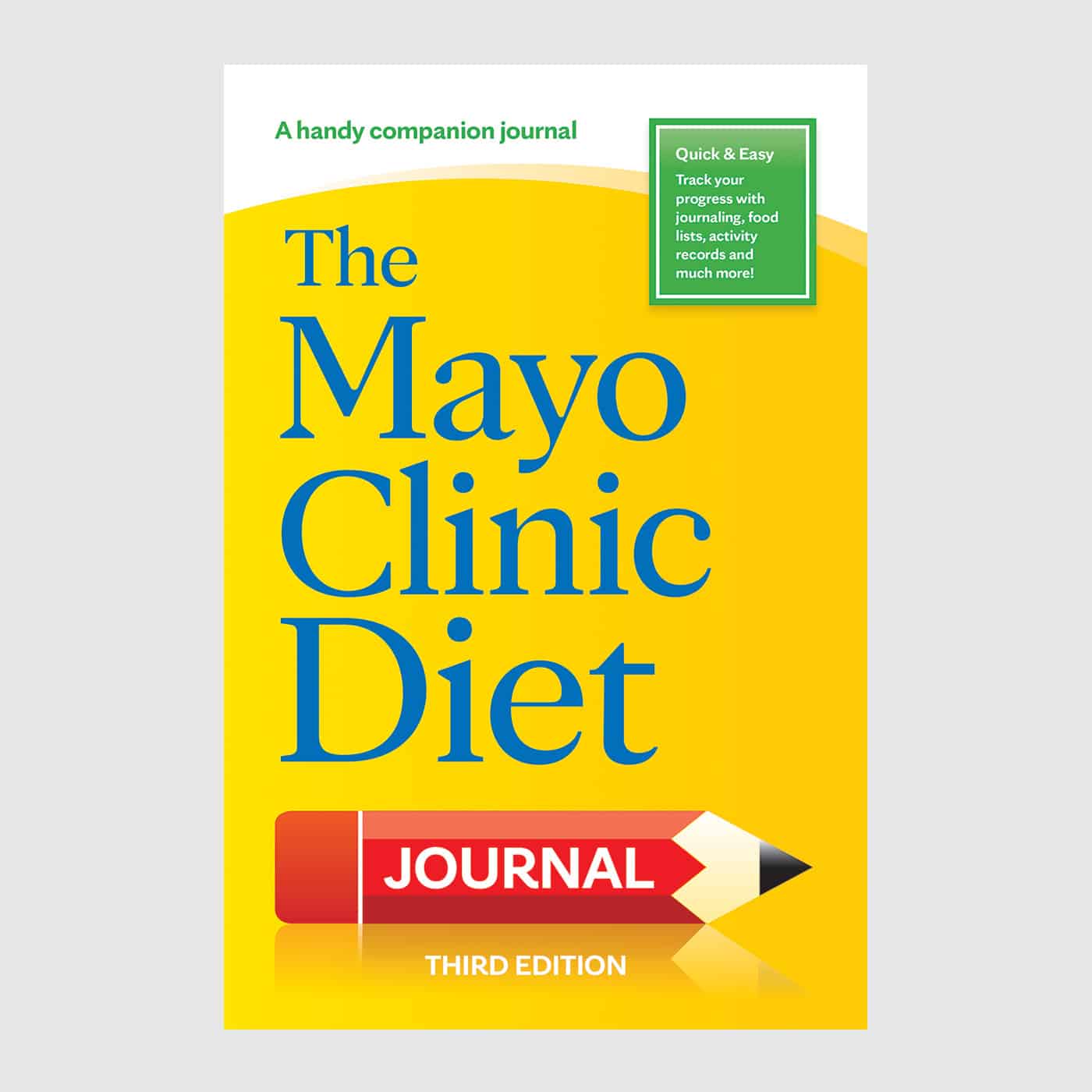
Relevant reading
The Mayo Clinic Diet Journal, Third Edition
This handy companion to The Mayo Clinic Diet is not your typical journal. The 224 pages of The Mayo Clinic Diet Journal will help you plan, track and review your progress over 10 weeks as you follow the program described in the #1 New York Times bestseller, The Mayo Clinic Diet.









